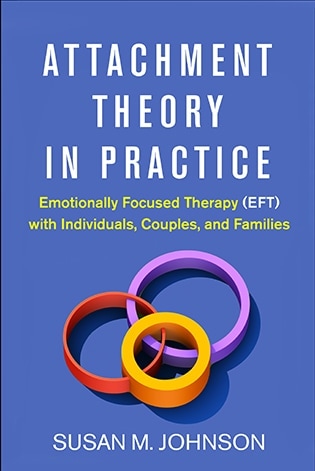
What is Emotionally Focused Therapy (EFT)?
Emotionally Focused Therapy (EFT) is a unique and highly effective form of therapy that helps people understand and improve their emotional connection with themselves and others. Developed in the 1980s, EFT is based on the principle that our emotions are central to our experiences and relationships. It suggests that we are naturally designed to have a secure sense of who we are and a sense of self we can trust and rely on. This solid base allows for strong, supportive bonds with others, and when these bonds are secure, we tend to be happier and healthier.
One of the great things about EFT is its versatility. While it’s widely recognized for helping couples strengthen their relationships (which is known as Emotionally Focused Couples Therapy or EFCT), it’s also extremely beneficial for individuals and families. For individuals, EFT (known as EFIT) can be particularly helpful in dealing with feelings of depression, anxiety, or the emotional aftermath of traumatic events. For families, EFT (EFFT) is used to deepen connections and repair strained relationships, making it an excellent choice for families looking to improve their dynamic.
What makes EFT stand out is its focus on emotions and how we manage and use them. This approach helps people understand their feelings and the feelings of those around them, leading to healthier and more fulfilling relationships. It’s not just about finding quick fixes; it’s about getting to the heart of the matter and creating lasting change.
EFT isn’t just a theory; its effectiveness is backed by extensive clinical research. It’s considered a gold standard in this field. Beyond therapy sessions, EFT principles have been applied to create various relationship education programs. These include “Hold Me Tight® Online“, an online relationship program for couples, “Hold Me Tight®: Conversations for Connection,” which is available in an online format, and specialized programs catering to different needs, like “Created for Connection” for Christian couples and “Healing Hearts Together” for couples dealing with cardiac issues. There are also programs designed for families with teenagers or adult children.
If you’re looking to deepen your personal connections, manage emotional challenges, strengthen your sense of self as a confident and competent person, and improve your family or romantic relationships, Emotionally Focused Therapy will be a transformative choice. It’s about building stronger connections, understanding self and each other better, and fostering emotional health, all of which are key to a happier, more fulfilling life.
To find a qualified EFT Therapist in your area, be sure to check out our Find an EFT Therapist Directory.
Detailed information about Emotionally Focused Therapy
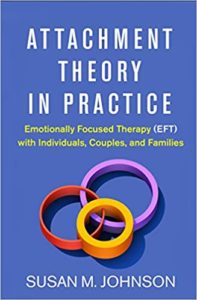
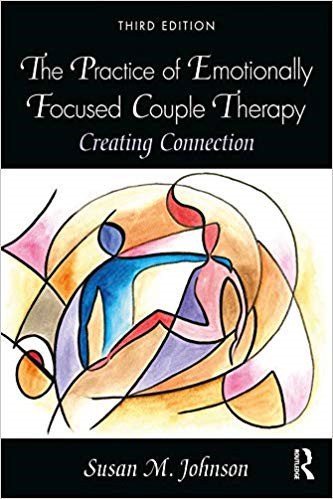
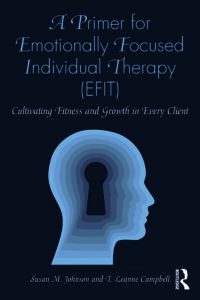
- EFT is based on clear, explicit research-based conceptualizations of individual growth, health and dysfunction and of relationship distress and adult love.
- EFT is collaborative and respectful of clients, helping you to make sense of your emotions, how to deal with them, and relate to others.
- Change strategies and interventions are clear and specified.
- Key moves and moments in the change process have been mapped into three stages of therapy and key change events that predict success at the end of therapy.
- EFT has been validated by over 30 years of empirical, peer reviewed outcome research. There is also research on the change processes and predictors of success.
- EFT has been applied to many different kinds of problems and populations.
EFT for Couples (EFCT)
EFT is a short term (8 to 20 sessions) structured approach, originally developed for couple therapy and based on attachment science, formulated in the 1980’s. Interventions in EFCT integrate a humanistic, experiential approach to restructuring emotional experience and a systemic structural approach to restructuring interactions. A substantial body of research now exists on the effectiveness of EFCT. This research shows large treatment effect sizes and stable results over time. EFCT is used successfully with many different kinds of couples in private practice, university training centers and hospital clinics. Research exists for couples dealing with depression, with anxiety resulting from trauma, with medical illness and with forgiveness dilemmas. EFCT is used with varied cultural groups and educational levels across North and South America, Australia, New Zealand, Europe, Africa and Asia. It is used with traditional and non-traditional couples, including same-sex couples.
Goals:
- To expand and re-organize key emotional responses and, in the process, the organization of the dance with loved ones.
- To create a positive shift in partners interactional messages and patterns.
- To foster the creation of a secure bond between partners.
EFT for Individuals (EFIT)
EFIT is an attachment science-based approach to individual therapy that, like the other EFT interventions, EFCT for couples and EFFT for families, offers ways to reshape and make sense of inner experience and relational interventions focused on reshaping patterns of engagement with significant others and the individual as a younger self. Emotion is given precedence across treatment modalities given its powerful role in structuring both inner experience and motivation and key interactional patterns in relationships. Emotion links and organizes core experience and interaction.
Goals:
- To offer corrective experiences that positively impact models of self and other and shape stable, lasting change.
- To offer transformative moments where vulnerability is encountered with balance and difficult moments befriended.
- To enable clients to move into the openness, responsiveness and full engagement that characterises secure attachment with others.
- To enable clients to shape a coherent sense of a competent self that can deal with existential life issues and become a fully alive human being.
Sue Johnson has written a great overview of EFIT for therapists and is available here.
A summary of Sue Johnson’s interview with Psychology Today about her newest book, A Primer for Emotionally Focused Individual Therapy (EFIT) – Cultivating Fitness and Growth in Every Client, can be found here.
EFT for Families (EFFT)
EFFT follows the principles and practices of Emotionally Focused Therapy to restore connection and promote resilience in family relationships. The principle goal of EFFT is to re-establish more secure family patterns where attachment and caregiving responses are effective and emotional bonds are repaired. These resources inform a network of security that provides the flexibility and closeness necessary for families to promote individual growth and meaningful relationships across generations.
The EFFT Approach
The EFT process of change in EFFT focuses on stabilizing a family’s negative interaction pattern, restructuring parent and child interactions, and consolidating the felt security gained through these new patterns of connection. Following principles of attachment science, the EFFT therapist guides the family to new patterns of parental availability, responsiveness and coherent attachment communications as they face developmental change and life challenges. In EFFT, the focus is on addressing blocks in parental caregiving responses and understanding the child or adolescent’s behavior in terms of attachment needs or fears. These blocks result from constrained, stuck responses to misattunement and injuries in family relationships. The EFFT therapist tracks the generational influences impacting these blocks and works through rigid patterns that disrupt attachment communication between parents, siblings and between parent and child. Work with parents focuses on the building of a coherent parenting team. The process of EFFT often moves quickly as family members become more responsive, accessible, and engaged with previously unacknowledged attachment-related emotions and needs.
Goals:
- Accessing and expanding awareness of unacknowledged feelings associated with the family’s negative pattern.
- Reframing family distress and child problems within relation blocks reinforcing this distress.
- Promoting awareness and access to underlying caregiving intentions and disowned attachment related needs.
- Facilitating the sharing of unmet attachment needs and effective caregiving responses.
About Sue
Dr Sue Johnson
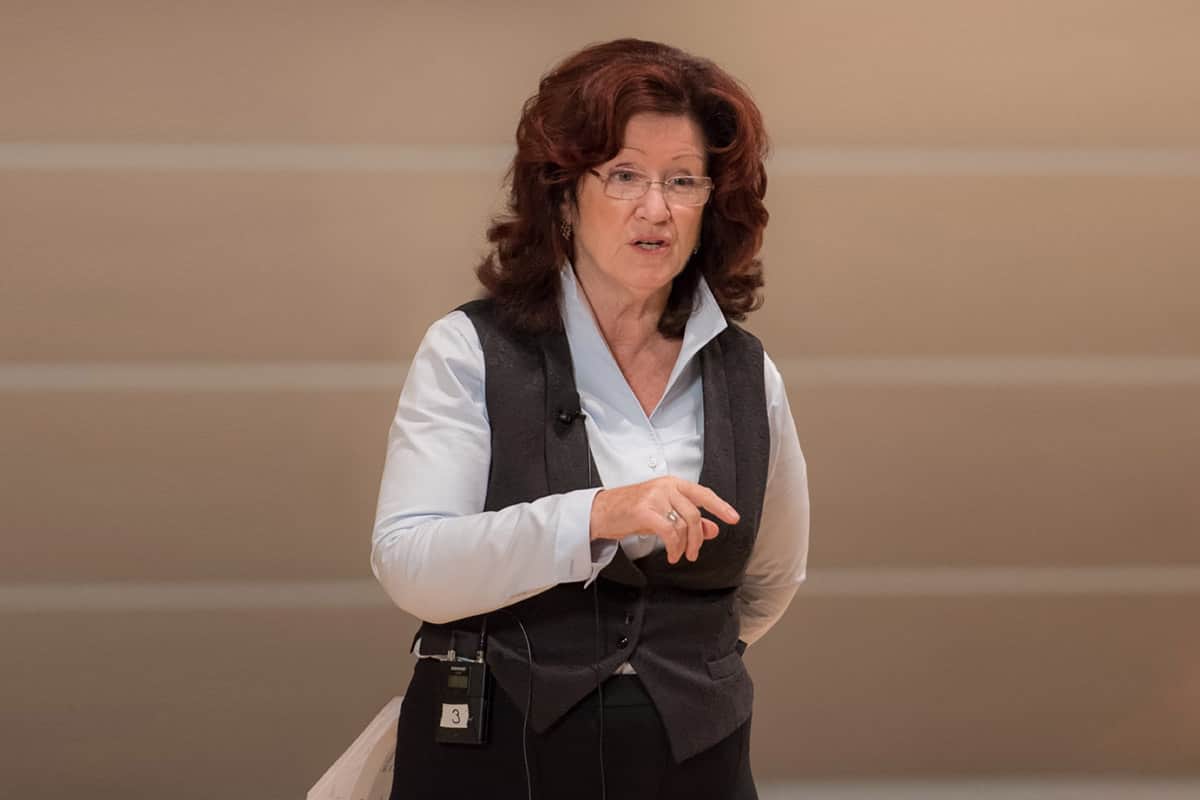
My work is primarily about creating a secure sense of connection with self and with others. Emotion has a deep logic to it, and we can learn to use it as a compass to guide our steps as we move with others through life.
Backed by years of research, my team and I want to help everyone learn about the revolutionary science of attachment and bonding. Growing emotionally and finding attachment at the heart of our humanity – what’s more thrilling than that?
Learn more about Sue at
